• Brandon Aiyuk: 8 receptions, 129 receiving yards, 2 touchdowns
• Christian McCaffrey: 22 carries, 152 yards, 1 touchdown, 3 receptions, 17 receiving yards
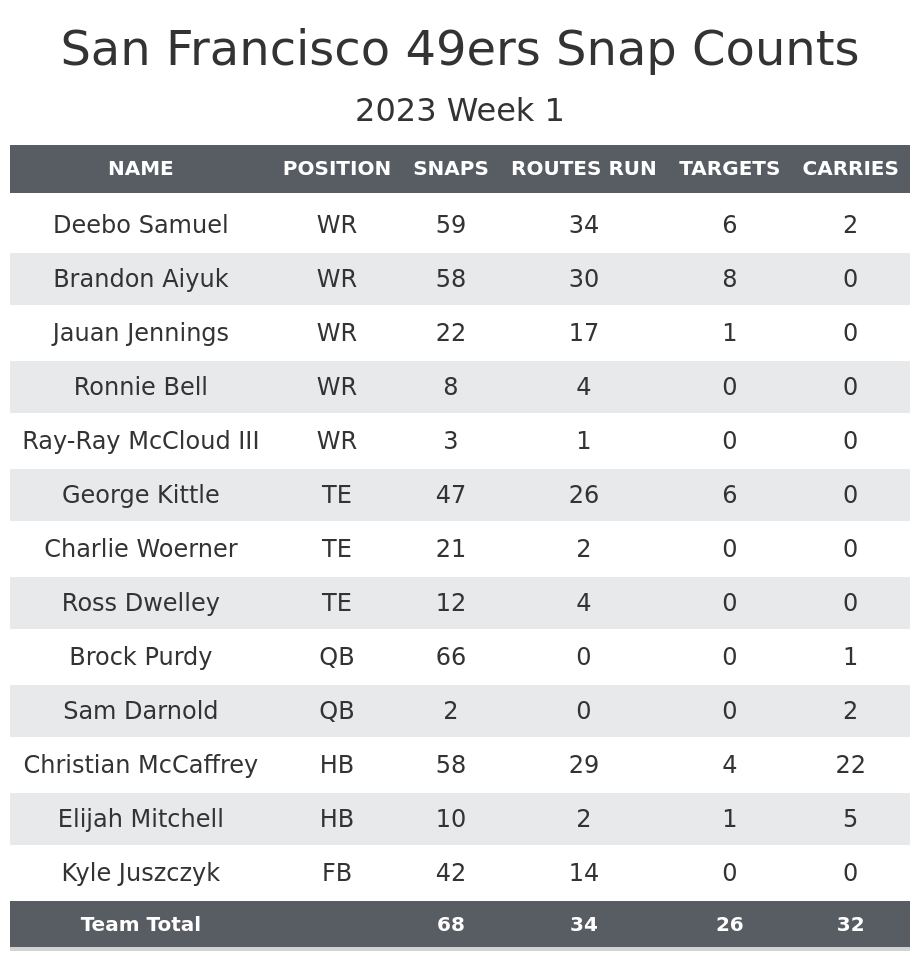
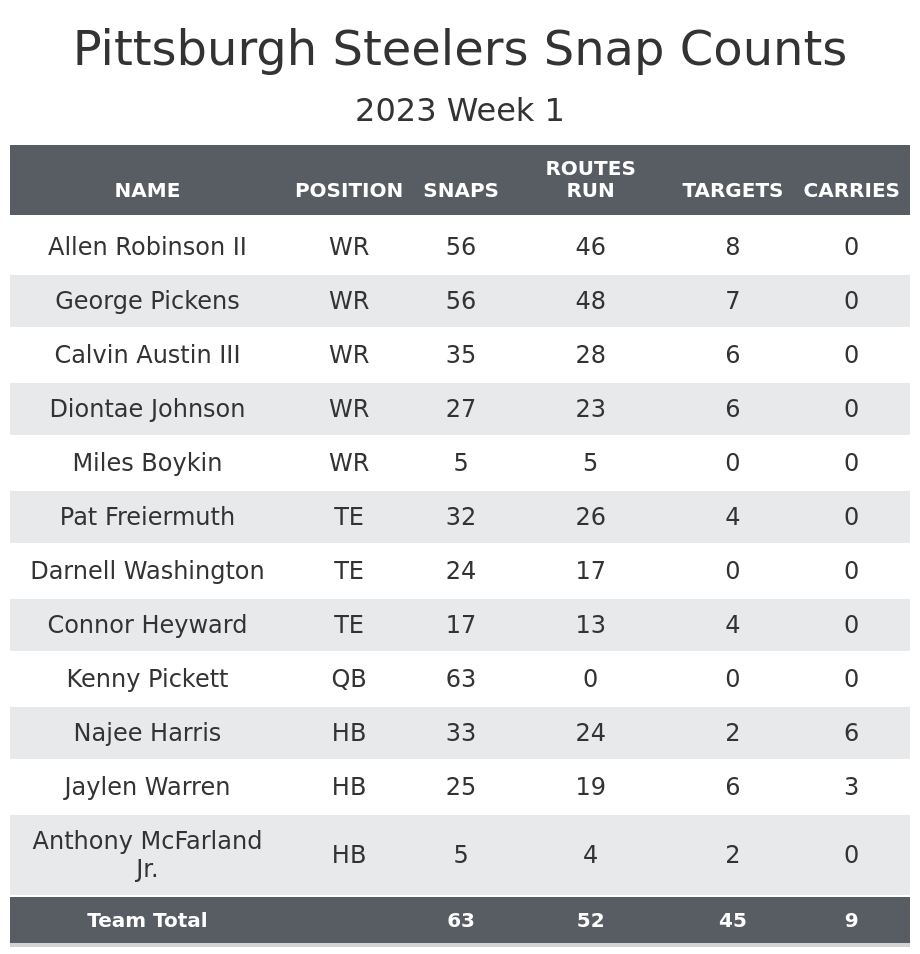
Najee Harris splits early-down snaps with Jaylen Warren: The two running backs saw identical snaps in normal early-down situations.
- Both players touched the ball eight times in this game, with Harris gaining more yards thanks to a 24-yard gain during the two-minute drill.
- Harris was still the primary short-yardage back and Warren was the primary third-down back, as expected.
- Harris also played the majority of snaps during the two-minute drill. Typically, it’s the third-down back who plays those snaps, but Harris was also the two-minute-drill back throughout last season.
- Harris is still expected to be the starter going forward, but all of the talk of Warren and Harris splitting snaps proved true in this first game.
- We should expect the Steelers’ offense to play much better going forward, leading to more opportunities for both running backs. Still, it will be hard for Harris to live up to his ADP in this kind of situation.
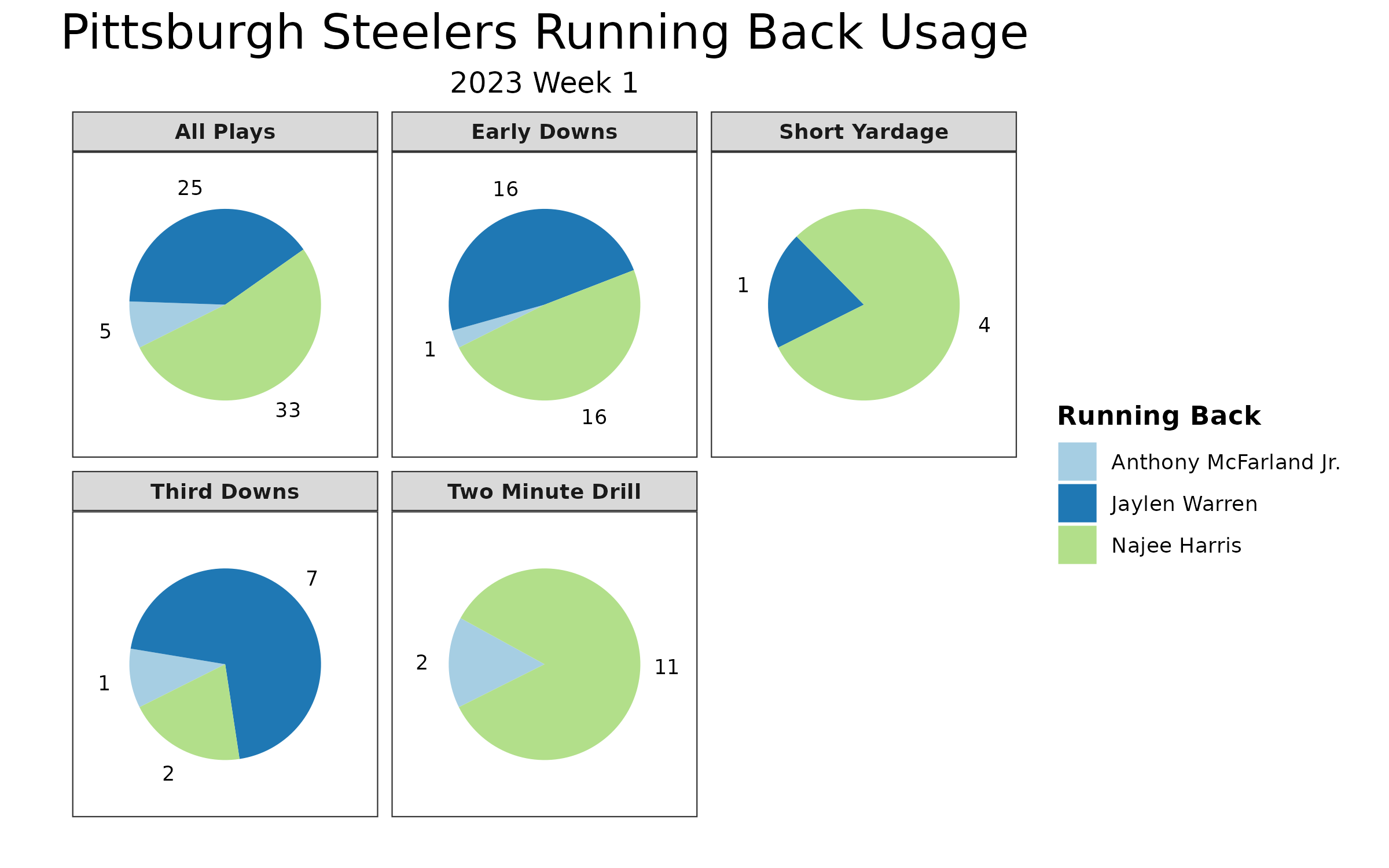
Monitor Diontae Johnson’s health: Johnson left for the locker room in the third quarter with a hamstring injury after a reception and was quickly ruled out.
- The Steelers’ wide receiver rotation went exactly as expected in the first half, with Johnson and Pickens leading the charge, Allen Robinson II playing in 11 personnel and Calvin Austin III mixing in.
- Austin was the direct replacement for Johnson. Austin is typically a slot receiver, but Robinson continued to play in the slot while Austin played out wide.
- Austin could be worth a waiver wire target if we find out that Johnson’s injury is serious.
Monitor Pat Freiermuth’s health: Freiermuth suffered a chest injury but continued to play on a limited basis afterward.
- Freiermuth played 23 of 27 snaps in the first half, including 18 of 22 pass plays. This was good to see, considering the investment Pittsburgh made in rookie Darnell Washington.
- Freiermuth played only eight of 34 snaps in the second half, with his last snap coming with more than 11 minutes left in the game.
- Considering the blowout, Pittsburgh likely didn’t want to risk further injury.
- It’s still worth it to monitor his health even though he was able to return to the game.
Christian McCaffrey dominates offensive snaps for San Francisco: McCaffrey played all but 10 of the 49ers’ offensive snaps.
- The 49ers used McCaffrey heavily last season when games were still close, but once San Francisco built a two-score lead, they would start to rotate running backs more often.
- McCaffrey played 59 of a possible 125 snaps when the 49ers had at least a two-touchdown lead last season.
- San Francisco spent most of this game with at least a two-touchdown lead and could have rotated its running backs more, but they didn’t. McCaffrey still played 34 of 42 snaps once the team established a 14-plus-point lead.
- McCaffrey is obviously always a must-start, but knowing he can keep succeeding in these kinds of games is great for his ceiling.
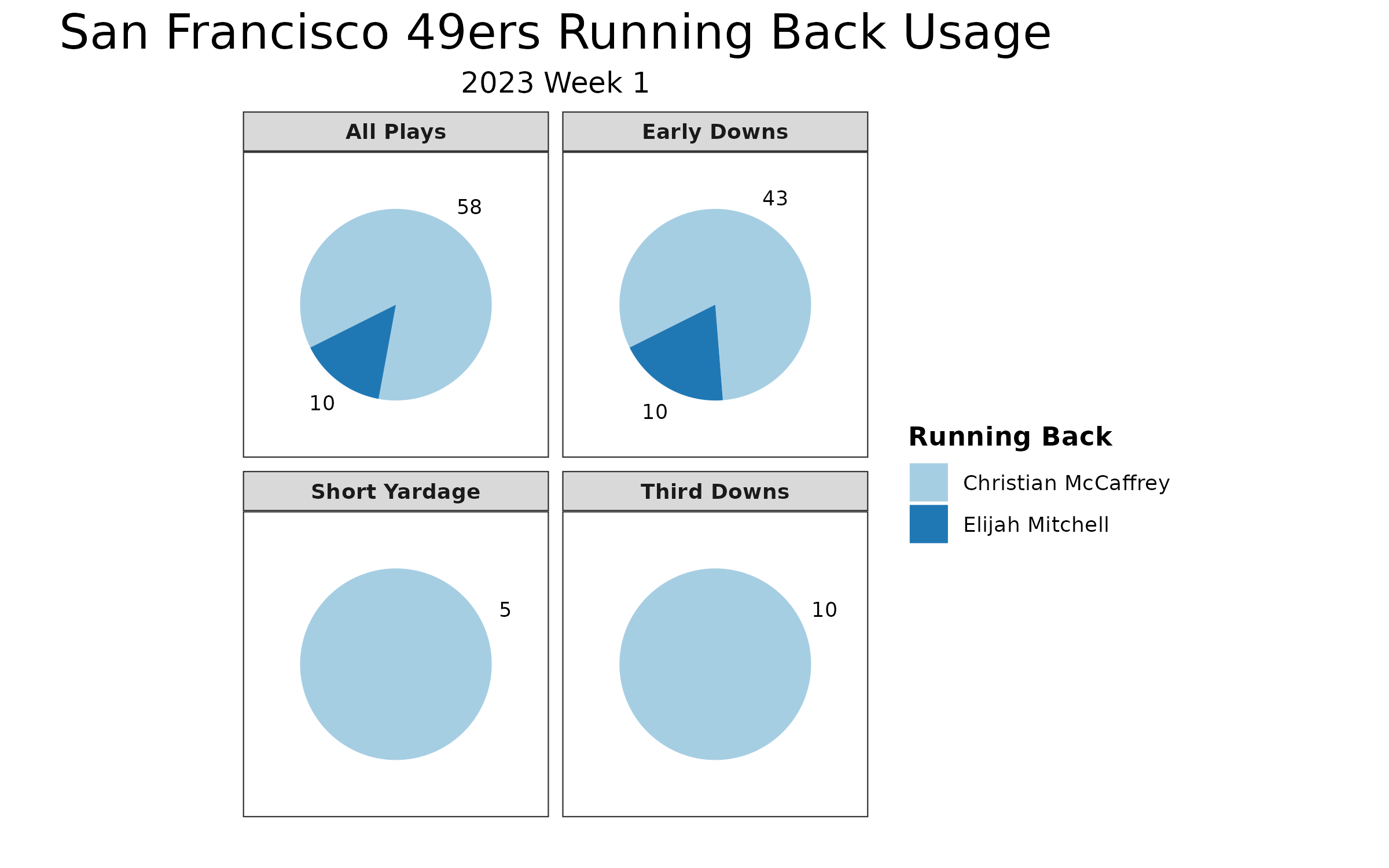
Miscellaneous Notes
- The 49ers made minimal changes at wide receiver and tight end this offseason, so their rotations at those positions remained similar to last season.
Table Notes
• Snaps include plays called back due to penalties, including offensive holding or defensive pass interference. The other three stats have these plays removed.
• Targets may differ from official NFL sources. The most likely discrepancy would be from a clear thrown-away pass, where the NFL may give the target to the nearest receiver, while this data will not.
• Carries are only on designed plays. Quarterback scrambles won’t count for the total number of carries in the game.
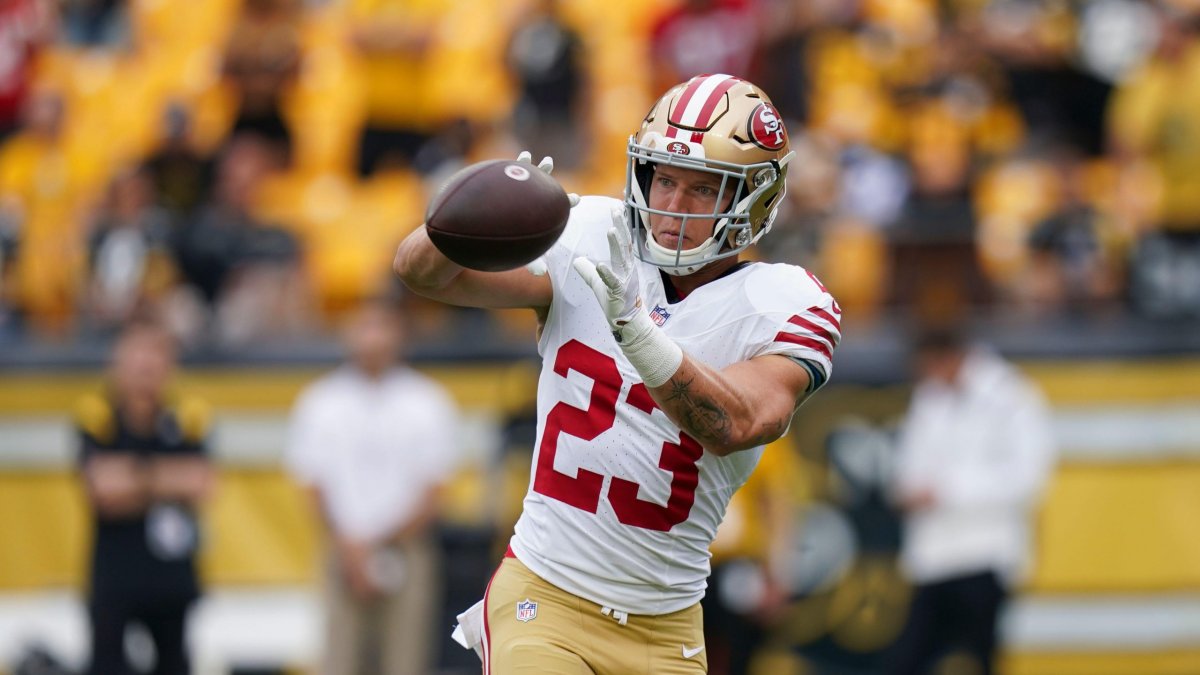
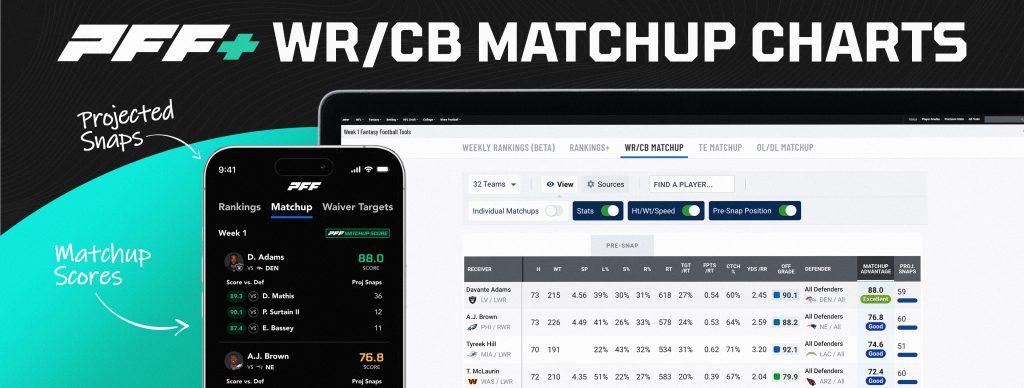



 © 2024 PFF - all rights reserved.
© 2024 PFF - all rights reserved.